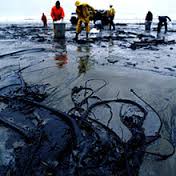
Lawyers for the Bodo community in Nigeria’s oil-producing Niger Delta, which was devastated by two major oil spills a decade ago, went to court in London on Tuesday to fend off what they said was an attempt by Shell to kill off their litigation according to Reuters report. The Bodo oil spills have been the subject of years of legal wrangling. In 2015, Shell accepted liability for the spills, agreeing to pay 55 million pounds ($83 million at the time) to Bodo villagers and to clean up their lands and waterways.
Oil spills, sometimes due to vandalism, sometimes to corrosion, are common in the Niger Delta, a vast maze of creeks and mangrove swamps criss-crossed by pipelines and blighted by poverty, pollution, oil-fuelled corruption and violence. The spills have had a catastrophic impact on many communities where people have no other water supply than the creeks and rely on farming and fishing for survival. At the same time, oil companies have run into problems trying to clean up spills, sometimes because of obstruction and even violence by local gangs trying to extract bigger payouts, or to obtain clean-up contracts.
After years of delays, the clean-up in Bodo is currently underway and litigation in the London High Court is stayed, or on hold. Lawyers for SPDC, the Nigerian arm of Shell, argued on Tuesday that the litigation should be struck off in October 2018, or at the latest a year later, and that it should only be re-activated if SPDC failed to comply with its obligation to pay for the clean-up. Lawyers for the Bodo community said that was unacceptable, because the clean-up could go wrong for any number of reasons and that under Shell’s proposal the villagers would be left without the recourse of going back to court.
“The effect of what Shell is trying to do is to kill off the case,” said Dan Leader, the Bodo community’s lead lawyer, on the sidelines of the hearing. “It’s only because of the pressure of litigation that the clean-up is getting back on track.” But Shell’s lawyers, citing an earlier judgment, compared the stayed litigation to a “gun in the cupboard” that the Bodo community’s lawyers wanted to be able to hold to Shell’s head at their convenience, for years on end. They said the litigation was a hindrance to the clean-up because it gave some local community members the impression that there was still the possibility of a bigger payout, incentivising them to block the clean-up rather than cooperate.
“The previous persistent delays to the clean-up process clearly demonstrate that litigating Nigerian oil spill cases in the English courts does little to resolve the complex underlying security and community issues which can frustrate attempts to clean up areas impacted by oil pollution,” an SPDC spokeswoman said. “We hope that the community will continue to grant the access needed for clean-up to progress as planned.” A judgment on the litigation issues is expected on Friday.

